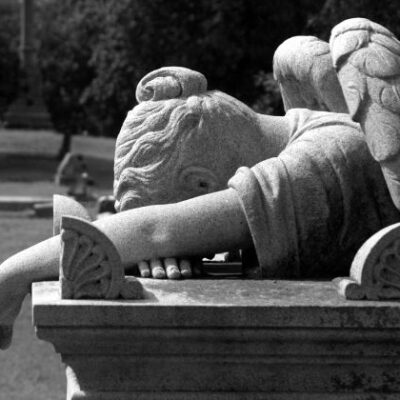
On June 2nd we celebrated Jerusalem Day here in Israel, a national holiday commemorating the liberation of Jerusalem during the Six Day War in 1967 and its unification under Israeli rule. But why is this one ancient city so important, so contentious, and why does who controls it raise to many issues? The bible has a lot to say about it, and so do hot geo-political debates around the world today, not to mention charged religious arguments as well. Put all of that together and what you have is a mess of conflicting and misleading narratives about Jerusalem. In order to dispel the fog about this special city, let’s first take a quick look at some historical facts about it.
Jerusalem from 638 to 1917: Muslim Rule
After Jews were exiled from Jerusalem in 70 AD, the Romans and then Byzantines controlled the city until the Arab Muslim takeover in 638. Apart from a short inglorious stint by Christian Crusaders, from 638 until the modern era Jerusalem was controlled by Muslims, first by Arab Muslims and then by the Ottoman Turks from 1516 until 1917. Having defeated the Turks in World War I, the British instituted their mandate rule in 1917 in what was then called British Mandate Palestine. The British Mandate lasted just about 30 years, when the British pulled out and Israel declared its independence.
Revealing Historical Accounts
So, what was Jerusalem like during the Muslim period? In 1867, a mere fifteen years before the first Jewish immigrants began returning to the Land, Mark Twain, not a religious man himself, joined a group of tourists and religious pilgrims on a journey to the Holy Land which was then under Ottoman rule. His humorous and acerbic observations paint a fascinating portrait of what Jerusalem was like after 1,000 years of Muslim rule:
Rags, wretchedness, poverty and dirt, those signs and symbols that indicate the presence of Moslem rule more sure than the crescent-flat itself, abound…Lepers, cripples, the blind, and the idiotic, assail you on every hand…Jerusalem is mournful, dreary, and lifeless. I would not desire to live here.
Six hundred years before Twain’s account of Jerusalem, famous biblical commentator Rabbi Moses ben Nachman headed to Jerusalem from Spain in 1267. In a letter home to his family, he wrote that of all the forsaken, desecrated and devastated places he saw in the Land, “Jerusalem is the most desolate place of all.”
Jerusalem from 1948 to 1967: Part of the Kingdom of Jordan
From 1948 until 1967, East Jerusalem was considered a part of Jordan which annexed the area at the end of Israel’s War of Independence. While they ruled Jerusalem, the Jordanians expelled all Jewish residents and barred Jews from visiting holy sites in East Jerusalem. Adding insult to injury, they desecrated the ancient Jewish cemetery on the Mount of Olives, using the headstones in construction, to pave roads and line latrines, and all but one of the 35 synagogues in the city were either razed to the ground or used to house animals.

Jerusalem in 1967: The Miracle
After failing to defeat the Jewish settlement in the Land, the Arab coalition led by Egypt, Jordan and Syria were waiting for an opportunity to attack and defeat Israel once and for all. Several months before the outbreak of war, troubling incidents began happening on Israel’s borders and Arab armies began mobilizing. Everyone in Israel, from the average citizen to those in the highest levels of leadership, knew that war was imminent and could very well end the short life of the fledgling Jewish state. At a moment when Israel was more than 2 times outnumbered in troops, 3 times outnumbered in tanks and aircraft, Israel decided to launch a pre-emptive strike against Egypt’s forces in the Sinai on June 5th. In those first few decisive hours, Israel destroyed nearly all of Egypt’s air force.
Israel wasn’t spoiling for a fight though: after destroying the Egyptian air force, Israel appealed to Jordan to stay out of the war. What Israel didn’t know was that the Egyptians had sent false reports of victory against the Israelis, galvanizing Arab armies to attack. However, as soon as they did, Israel responded in full force, annihilating Jordan’s and Syria’s air forces and granting Israel total air dominance. After a difficult battle to take the ascent into Jerusalem where the Jordanians sat entrenched, Moshe Dayan ordered the IDF to take the Old City of Jerusalem on June 7th , which it did with little resistance. Three days after the start of the war, Israel had control of Jerusalem, the heart and longing of exiled Israel for nearly two-thousand years, expressed by General Shlomo Goren:
“The city of God, the site of the Temple, the Temple Mount and the Western Wall, the symbol of the nation’s redemption, have been redeemed today by you, heroes of the Israeli Defense Forces.”
Jerusalem Today: Prophetic Miracle, Spiritual Barometer

At the start of the Six Day War, the feeling was of imminent death. On June 7th, three days into the war, Israeli paratroopers liberated Jerusalem, and when Colonel Gur broadcasted the fateful announcement, “The Temple Mount is in our hands!”, spontaneous celebrations broke out all over the country: it was like the resurrection on the 3rd day. Exactly one week later, on June 14th, the holiday of Pentecost (Shavuot) began, reminding us that 2,000 years before God poured out His Spirit on a group of Jews meeting in Jerusalem, a group that would spread the gospel to the world. It’s no coincidence that the “Jesus Movement”, a powerful spiritual awakening which swept the US, coincided with the liberation of Jerusalem in 1967—a movement in which many Jews came to faith in Messiah, no few of whom are prominent leaders in the Body of Messiah in Israel today.

In the physical, Jerusalem is a beautiful, thriving city with universities, museums, and culture. In the spiritual, Jerusalem is much more: it’s the one place God has chosen to place His name (1 Kings 11:36), is called God’s holy mountain (Isaiah 66:20) the Throne of the Lord (Jeremiah 3:17). Beyond that, it’s the one city which must collectively invite the Messiah back before His return (Luke 13:34-35). The devil has put much energy into keeping Jews from accepting their Messiah and bringing the city of Jerusalem into dispute, which means we should heed David’s call to pray for the peace of Jerusalem more than ever and contend for the spiritual end time awakening in Jerusalem which will welcome back the Great King, Yeshua!





